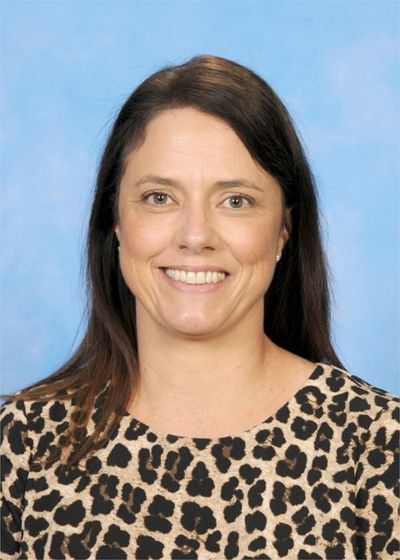Creating mathematical mindsets
By Jo O’Brien - Acting Assistant Head of Junior School, AHOJS Teaching and Learning

The word mathematics comes from the Greek word manthanein which means to learn. In her book ‘Mathematical Mindsets: Unleashing Students’ Potential through Creative Mathematics, Inspiring Messages and Innovative Teaching’, Jo Boaler, Professor of Education at Stanford University, challenges the idea that some people just can’t do maths, “I’m not a maths person.” She embraces the very meaning of the word mathematics and emphasises that everyone can learn maths.
“The very best opportunities to learn come about when students believe in themselves.”
“Teachers, parents and leaders have the opportunity to set students on a growth mindset mathematics pathway that will bring them greater accomplishment, happiness and feelings of self-worth throughout their lives.”
Bruce Ferrington is our resident mathematics expert, and he is well regarded in mathematical communities locally, nationally, and globally. He recently conducted a survey with our Junior School classroom teachers and in seven questions asked them to consider the importance of mathematics in conjunction with how they plan, teach, assess, and engage students in mathematical experiences.
After analysing the results of the survey, Bruce summarised the teachers’ thinking about the learning and teaching of mathematics in the Junior School in an overarching statement and six key beliefs:
In the Junior School, we work hard to make maths an inspiring and thought-provoking activity. We use practical tasks that challenge students to think carefully and use their skills and knowledge to find solutions.
We believe that:
- Everyone can succeed at maths:Our brains are malleable, which means we can learn, we can grow, we can change. Skills can be practised, and we can improve. Our understanding can develop from playing and from exploring. Self-belief and confidence are significant and are central to learning. Children need to understand that, as their teachers, we believe in their ability to succeed.
- We start with a provocation:
Part of the reason for having a provocation at the start of a lesson is to get engagement and interest. Students experience the provocation, and they start to ask questions. Through the provocation we can show the children where we want to go, give them a vision of our learning and then we can participate in a conversation. How are we going to get there? How are we going to solve this problem? What tools do we need? What skills will be developed? By keeping the provocation open ended, we can prolong the inquiry and sustain the learning of the children. - Maths anxiety is real:
Teachers appreciate that it is easier to destroy confidence than it is to build it. Seemingly small events may become major traumas in the mind of a child. Students will learn at different rates. Their outcomes will be different. We work hard to support the idea that individuals are valued, and their contribution is unique. Pressure to conform is a negative force. We need to build slowly, build carefully. - We learn in a relationship:
We are all learners. We learn together. We get new ideas by listening to multiple perspectives. We need each other to give feedback so that the voice we hear is more than just our own. The idea of relationship means that we need to contribute, and we also need to receive. It is that interaction of giving and receiving that we work to foster in the classroom. Through this, we build a community where the individual is recognised and appreciated. - Language is powerful:
We believe that language is really important and the things we say to students have a huge impact. The use of positive and encouraging language helps students to develop a positive attitude towards learning. - Maths can be fun:
We believe that math can be fun. It should involve play, it should involve games, it should involve children being creative in trying new, crazy, wacky, silly ideas. We encourage children to look at things from a new perspective, looking “outside of the box”. Children need to try things in different ways, rather than just one conventional way. We want to encourage the students to look for multiple strategies to find multiple solutions. Children learn more when having fun. Don’t we all?
I would like to take this opportunity to thank Bruce for his leadership and mentorship when supporting staff and students to further enhance their mathematical understandings.
As a result of his work, and ongoing professional learning, we remain committed to developing our students as capable and confident mathematicians who recognise their potential and see mathematics as an integral, interesting, and essential element in their daily lives.
References:
Boaler, J 2016, Mathematical Mindsets: Unleashing Students' Potential through Creative Math, Inspiring Messages and Innovative Teaching,
1 edn, Jossey-Bass, San Francisco, California.
